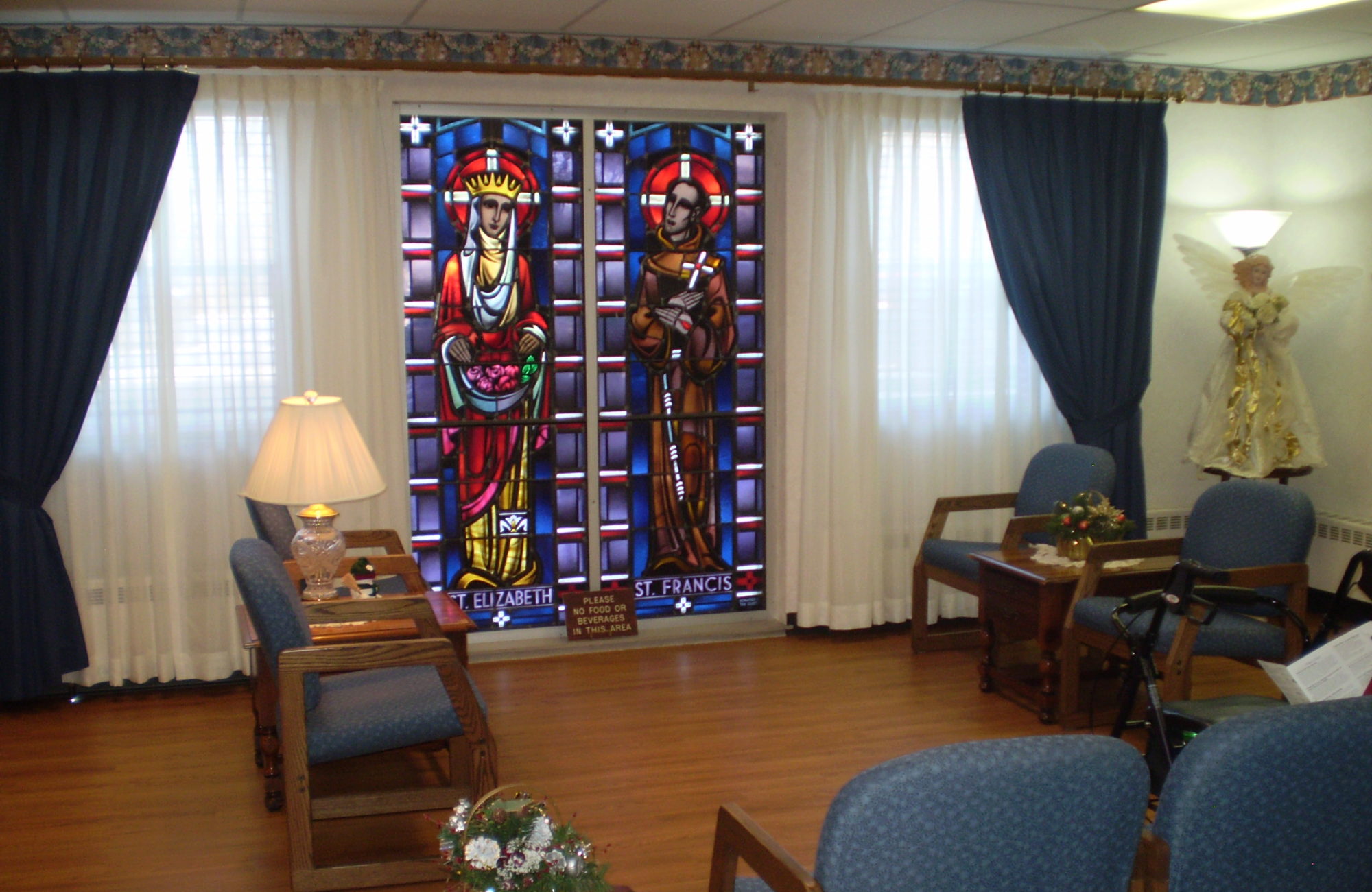 As I begin compiling this blog post, I am in the middle of working another night shift at St. Anne’s. I enjoy night work and am glad to help out in this way when needed. However, someone recently commented that doing this “isn’t very healthy.” I begged to differ that an occasional night shift isn’t the end of the world; it’s better to be available when there’s a staffing problem than to selfishly say “I need my beauty rest.” However, I realize that healthy sleeping habits are important and deserve consideration, especially as people age. In this article, I’d like to share with you some of what I found about healthy sleeping habits, especially for seniors. How much sleep do you get? How much do you need? I’ve wondered this myself. According to an article on senior sleep habits (sited later in this article), “most healthy adults tend to require between seven and a half to nine hours of sleep per night to function at their best.” They did note, however, that needs vary for different individuals. According to helpguide.org, “consistently going to sleep and rising at the same time leaves people feeling “much more refreshed and energized.” They suggest resisting the urge to stay up late and sleep in on weekends. They even suggested napping to compensate for missed zees, rather than sleeping in late. However, this same site warned about the dangers involved in napping, with the risk of causing insomnia. Not napping too late in the day, and also limiting the nap to 30 minutes are a couple of ways of reducing this risk. An article by the Mayo Clinic also stresses the importance of maintaining a sleep schedule. This same article suggests limiting naps. It also shares some helpful information about the two types of sleep: non-rapid eye movement — or NREM sleep — and rapid eye movement — or REM sleep. NREM sleep…We cycle through the NREM-REM stages of sleep approximately every 90 minutes.” (The deepness of sleep depends on this.) The helpguide article shared that one important factor in sleeping ease and sleepiness is exposure to light. To help with alertness, increase your exposure to light and take advantage of daylight outdoors. On the other hand, when you’re trying to fall asleep, don’t use the TV or computer, as these can hinder your ability to sleep. I’ve even heard it said that a person should not use the computer for an hour before going to bed as it may cause difficulty in falling asleep. Avoiding bright lights, both before bed and when getting up at night, is also suggested. Following a set bedtime routine is another way of helping your body get into “sleep mode.” Some examples include: reading a book or magazine (using soft light), taking a warm bath, listening to soft music, making little preparations for tomorrow, and winding down with a hobby. Some of these same practices can be applied if you wake in the middle of the night. Keeping your bedroom free of noise and also at a comfortable temperature also can help. You don’t want it too hot or too cool, as this can make sleeping difficult. Another thing that can keep you from sleeping is worrying; there may be a lot that has to be done the coming day. Although some people offer relaxation exercises, why not try something as simple as making “to-do list.” A time of prayer before bed, entrusting these and other worries to our Lord, is a great way to conclude the day that is past and prepare for sleep. (Check out my article on Our Franciscan Fiat for an explanation on doing a daily examen in the evening.) This can be a helpful bedtime “ritual.” Another article by this same source (helpguide.org) shares information more specific to seniors: It is noted that changes in sleep patterns (earlier sleeping and waking and less deep sleep) are normal. Insomnia, however, is not to be accepted as part of aging. In fact, good sleep is important for seniors for helping with concentration and memory; it also lets your body repair cell damage and “refreshes your immune system. Actually, if you are a senior who doesn’t sleep well, you are more suseptable to “depression, attention and memory problems, and excessive daytime sleepiness [as well as] more nighttime falls [and] increased sensitivity to pain. Also, you’re likely to “use more prescription or over-the-counter sleep aids.” This same source about seniors also noted that “insufficient sleep can also lead to…an increased risk of cardiovascular disease, diabetes, weight problems, and breast cancer in women.” An article by the Sleep Foundation also pointed out that people tend to have a harder time falling (and staying) asleep as they age. Although seniors still need the same sleep, they tend to have less deep sleep (including less REM sleep). Consequently, they may need to spend a longer time in bed to get the quality sleep they need. This source also pointed out that insomnia is more frequent among seniors. According to the helpguide article, one issue at hand in senior sleep needs is the fact that your body makes less growth hormone as you age, leading to lessening of deep sleep and melatonin production. According to Mayo, seniors may also be more sensitive to noise and environmental factors, which may hinder sleep. While all this is normal, there are some causes of insomnia in older adults that we should note. The leaders among these include:
As I begin compiling this blog post, I am in the middle of working another night shift at St. Anne’s. I enjoy night work and am glad to help out in this way when needed. However, someone recently commented that doing this “isn’t very healthy.” I begged to differ that an occasional night shift isn’t the end of the world; it’s better to be available when there’s a staffing problem than to selfishly say “I need my beauty rest.” However, I realize that healthy sleeping habits are important and deserve consideration, especially as people age. In this article, I’d like to share with you some of what I found about healthy sleeping habits, especially for seniors. How much sleep do you get? How much do you need? I’ve wondered this myself. According to an article on senior sleep habits (sited later in this article), “most healthy adults tend to require between seven and a half to nine hours of sleep per night to function at their best.” They did note, however, that needs vary for different individuals. According to helpguide.org, “consistently going to sleep and rising at the same time leaves people feeling “much more refreshed and energized.” They suggest resisting the urge to stay up late and sleep in on weekends. They even suggested napping to compensate for missed zees, rather than sleeping in late. However, this same site warned about the dangers involved in napping, with the risk of causing insomnia. Not napping too late in the day, and also limiting the nap to 30 minutes are a couple of ways of reducing this risk. An article by the Mayo Clinic also stresses the importance of maintaining a sleep schedule. This same article suggests limiting naps. It also shares some helpful information about the two types of sleep: non-rapid eye movement — or NREM sleep — and rapid eye movement — or REM sleep. NREM sleep…We cycle through the NREM-REM stages of sleep approximately every 90 minutes.” (The deepness of sleep depends on this.) The helpguide article shared that one important factor in sleeping ease and sleepiness is exposure to light. To help with alertness, increase your exposure to light and take advantage of daylight outdoors. On the other hand, when you’re trying to fall asleep, don’t use the TV or computer, as these can hinder your ability to sleep. I’ve even heard it said that a person should not use the computer for an hour before going to bed as it may cause difficulty in falling asleep. Avoiding bright lights, both before bed and when getting up at night, is also suggested. Following a set bedtime routine is another way of helping your body get into “sleep mode.” Some examples include: reading a book or magazine (using soft light), taking a warm bath, listening to soft music, making little preparations for tomorrow, and winding down with a hobby. Some of these same practices can be applied if you wake in the middle of the night. Keeping your bedroom free of noise and also at a comfortable temperature also can help. You don’t want it too hot or too cool, as this can make sleeping difficult. Another thing that can keep you from sleeping is worrying; there may be a lot that has to be done the coming day. Although some people offer relaxation exercises, why not try something as simple as making “to-do list.” A time of prayer before bed, entrusting these and other worries to our Lord, is a great way to conclude the day that is past and prepare for sleep. (Check out my article on Our Franciscan Fiat for an explanation on doing a daily examen in the evening.) This can be a helpful bedtime “ritual.” Another article by this same source (helpguide.org) shares information more specific to seniors: It is noted that changes in sleep patterns (earlier sleeping and waking and less deep sleep) are normal. Insomnia, however, is not to be accepted as part of aging. In fact, good sleep is important for seniors for helping with concentration and memory; it also lets your body repair cell damage and “refreshes your immune system. Actually, if you are a senior who doesn’t sleep well, you are more suseptable to “depression, attention and memory problems, and excessive daytime sleepiness [as well as] more nighttime falls [and] increased sensitivity to pain. Also, you’re likely to “use more prescription or over-the-counter sleep aids.” This same source about seniors also noted that “insufficient sleep can also lead to…an increased risk of cardiovascular disease, diabetes, weight problems, and breast cancer in women.” An article by the Sleep Foundation also pointed out that people tend to have a harder time falling (and staying) asleep as they age. Although seniors still need the same sleep, they tend to have less deep sleep (including less REM sleep). Consequently, they may need to spend a longer time in bed to get the quality sleep they need. This source also pointed out that insomnia is more frequent among seniors. According to the helpguide article, one issue at hand in senior sleep needs is the fact that your body makes less growth hormone as you age, leading to lessening of deep sleep and melatonin production. According to Mayo, seniors may also be more sensitive to noise and environmental factors, which may hinder sleep. While all this is normal, there are some causes of insomnia in older adults that we should note. The leaders among these include:
- Poor sleep habits and sleep environment [with] irregular sleep hours, consumption of alcohol before bedtime, and falling asleep with the TV on
- Pain or medical illness, including need to urinate, arthritis, asthma, diabetes, osteoporosis, nighttime heartburn and menopause
- Medications
- Lack of exercise
- Psychological stress or psychological disorders, including anxiety or sadness
- Sleep disorders
- Learned response – due to some cause (e.g., grief), you get in the habit of not sleeping, which persists even after the initial cause is gone.
Conversely, this article also shared some tips to help you get a good night’s sleep:
- Activity: social, work, volunteer, and family
- Exercise regularly. This can help with mood and reduce stress, depression, and anxiety. Also, if you’ve worked hard by exercise, you’ll be more ready to sleep well.
- Limit caffeine, alcohol, and nicotine (stimulants that interfere with the quality of your sleep)
- Minimize liquid intake before sleep

